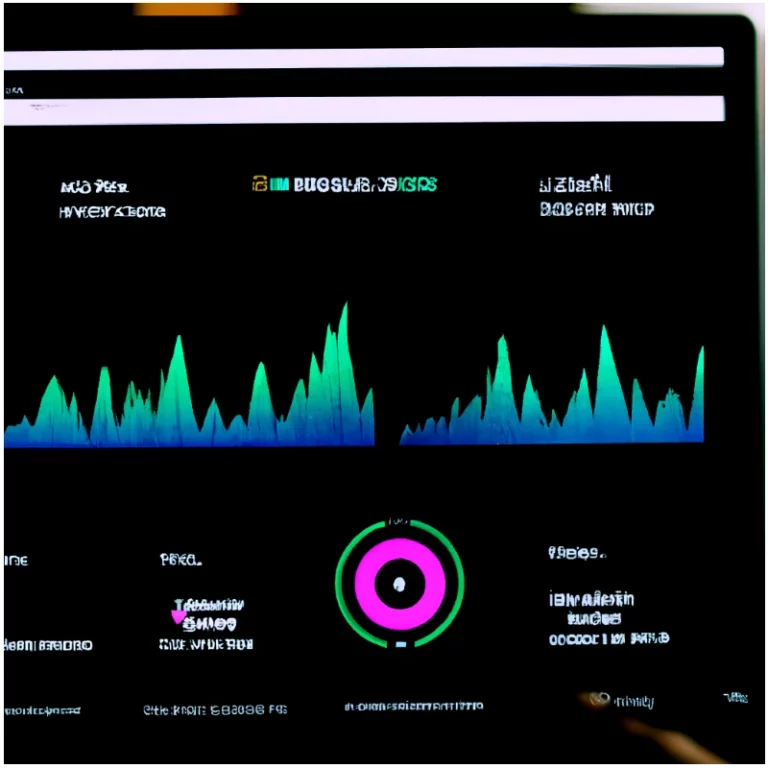Digital Marketing for Small Businesses Demystified: The #1 Ultimate Guide for Success
Introduction
In today’s digital age, having an online presence is absolutely crucial for any small business looking to thrive and grow. Digital marketing has become The form of marketing strategies, enabling businesses to reach and engage with their target audience like never before. I am sure you are keenly aware, that nearly every business is online in some fashion.
However, navigating the vast and ever-evolving world of digital marketing can be overwhelming, and time-consuming, especially for professionals running small businesses. Below I hope to help you understand the ins and outs of digital marketing and provide you with practical strategies and tips to effectively promote your small business in the online space.
So, whether you’re a lawyer, accountant, consultant, or any other professional, keep reading to discover how digital marketing can help improve your business. And it’s not as scary as it seems.

Understanding the importance of digital marketing for small businesses
Understanding the importance of digital marketing for small businesses in today’s digital landscape, traditional marketing alone is no longer enough to effectively reach and engage with your target audience. Digital marketing offers small businesses an unparalleled opportunity to expand their reach, build brand awareness, and attract new clients or customers that would otherwise go elsewhere.
One of the key benefits of digital marketing is its ability to level the playing field. Regardless of the size or budget of your business, digital marketing allows you to compete with larger competitors on a more equal footing even though it doesn’t always feel that way.
By utilizing strategies such as search engine optimization (SEO), social media marketing, email marketing, and content creation, you can create a strong online presence and increase your chances of being discovered by potential clients.
Furthermore, digital marketing provides measurable results and allows for targeted campaigns. Unlike traditional marketing methods such as print ads or television commercials, digital marketing allows you to track your campaigns in real time and make adjustments based on data and analytics. This not only helps you make informed business decisions but also ensures that you are effectively utilizing your marketing budget.
Digital marketing also offers a range of tactics and strategies that can be tailored to suit the specific needs and goals of small businesses. From creating informative blog posts and promoting them on social media to implementing effective email marketing campaigns, the possibilities are endless.
Let’s delve deeper into the various aspects of digital marketing, including content marketing, social media marketing, search engine optimization, and more. Stay tuned to learn how to leverage these strategies to your advantage and take your small business into the digital age, or at least not get as lost in the maze!
Setting clear goals and objectives for your digital marketing strategy
Once you understand the importance of digital marketing for your small business, it’s essential to set clear goals and objectives for your digital marketing strategy. By defining what you want to achieve, you can create a roadmap that will guide your efforts and ensure that you are working towards your desired outcomes.

Start by identifying your overarching business goals
- Attract New Clients
- Drive Website Traffic
- Generate More Leads
- Build Brand Awareness
- Connect with Current Clients
- Reconnect with Previous Clients
Each of these goals will require a different approach and set of tactics within your digital marketing strategy.
Once you have determined your business goals, break them down into specific and measurable objectives. For example, if your goal is to increase website traffic, an objective could be to increase organic search traffic by 20% within six months. Ensure you have a target and a realistic deadline. By setting specific objectives, you can track your progress and adjust your strategy as necessary.
Remember to consider the SMART criteria when setting your goals and objectives. SMART stands for Specific, Measurable, Achievable, Relevant, and Time-bound. This framework will help ensure that your goals are realistic and achievable.
Next, we will explore the different digital marketing tactics that you can incorporate into your strategy to help you achieve your goals and objectives.
Identifying your target audience and their online behaviors
Identifying your target audience and understanding their online behaviors is a crucial step in developing a successful digital marketing strategy for your small business. After all, you want to ensure that your marketing reaches the right people at the right time.
To start, take some time to research and define your target audience. Consider demographics such as age, gender, location, and occupation. Additionally, think about their interests, needs, and motivations that align with your products or services.
Once you have a clear understanding of your target audience, delve into their online behaviors. Determine which social media platforms they use most frequently, what type of content they engage with, and the keywords they use when searching for products or services like yours.
By gaining insights into your target audience’s online behaviors, you can tailor your digital marketing tactics accordingly. For example, if your audience spends a significant amount of time on Instagram, you may want to focus on creating visually appealing content and sponsored posts on that platform.
Creating a comprehensive digital marketing plan
Once you have identified your target audience and understand their online behaviors, it’s time to create a comprehensive digital marketing plan for your small business. This plan will serve as a roadmap for your marketing efforts and ensure that you are utilizing a variety of tactics to reach and engage your audience effectively.
Start by setting clear goals for your digital marketing strategy. These goals should be specific, measurable, achievable, relevant, and time-bound (SMART goals). For example, your goal could be to increase website traffic by 20% within the next three months.
Next, determine which digital marketing tactics will help you achieve your goals. Some common tactics include email marketing, paid advertising, search engine optimization (SEO), content marketing, social media marketing, and influencer partnerships.
Allocate your budget and resources based on the tactics that will have the greatest impact on your target audience. This may require some trial and error, but over time, you will be able to optimize your budget allocation for maximum results.

Regularly monitor and analyze the performance of your digital marketing efforts. Use tools like Google Analytics to track website traffic, conversions, and other key metrics. This data will help you make informed decisions and make adjustments to your strategy as needed.
Remember, a comprehensive digital marketing plan is an ongoing process that may take some time before you see any results. Stay up-to-date with the latest trends and technologies in the digital marketing world. Adapt and evolve your strategy as needed to stay relevant and ahead of the competition.
Implementing various digital marketing tactics and strategies
Now that you have set clear goals and allocated your budget, it’s time to dive into the implementation of various digital marketing tactics and strategies. In this section, we will explore some of the most effective tactics that can help your small business reach and engage your target audience.
1. Email Marketing: Email marketing remains one of the most powerful tools in digital marketing. It allows you to directly communicate with your audience, nurture leads, and convert them into loyal customers. Build an email list by offering valuable content and incentives, and then send targeted and personalized campaigns that resonate with your audience. Your email list is the single most important piece of the digital marketing puzzle.
2. Paid Advertising: Paid advertising, whether it be through search engines, social media platforms, or display networks, can help boost your brand’s visibility and attract relevant traffic. Take advantage of targeting options to reach your ideal audience, and continuously optimize your ad campaigns based on performance data.
3. Search Engine Optimization (SEO): Ranking high in search engine results is crucial for driving organic traffic to your website. Optimize your website’s structure, content, and meta tags to improve its visibility in search engines. Keyword research and link building are also integral parts of an effective SEO strategy.
4. Content Marketing: Create high-quality and valuable content that educates, entertains, and engages your audience. Blog posts, videos, infographics, and eBooks can all be used to showcase your expertise, build trust, and attract potential customers. Distribute your content through various platforms, such as your website, social media channels, and industry forums. Video is increasingly taking over the content marketing space, but that does not mean written content is dead!
5. Social Media Marketing: Utilize social media platforms to build a community around your brand, interact with your audience, and promote your products or services. Choose the platforms that align with your audience demographics and create engaging content that encourages conversation and sharing.
6. Influencer Partnerships: Collaborating with influencers in your industry can help you reach a wider audience and build credibility. Identify influencers who have a strong following and align with your brand values, and then collaborate on content creation, product endorsements, or events.
Remember, every business is unique, and what works for one may not work for yours. Experiment with different tactics and measure the performance against your goals. Continuously evaluate and refine your strategies to ensure you are maximizing your digital marketing efforts.
Monitoring and analyzing the success of your digital marketing efforts
Implementing various digital marketing tactics and strategies is just the first step towards growing your small business. To ensure that your efforts are effective and yielding results, it is crucial to constantly monitor and analyze their success.
Tracking the performance of your campaigns, such as open rates and click-through rates for email marketing, impressions and conversions for paid advertising, keyword rankings and organic traffic for SEO, engagement, and shares for content marketing, and reach and engagement for social media marketing, will provide you with valuable insights into what is working and what needs improvement.
By regularly analyzing this data, you can identify trends, understand your audience’s preferences, and make data-driven decisions to optimize your digital marketing efforts. This data will help you determine which tactics are driving the highest return on investment and allocate your resources accordingly.
Tools like Google Analytics, social media analytics, and email marketing platforms provide comprehensive data and reports to help you measure the success of your digital marketing efforts. Use these tools to gain insights into your audience’s behavior, track conversions, and monitor the effectiveness of your campaigns. However Google Analytics spies on everyone, and it might not even be legal in some areas without jumping through a ton of legal hoops. If you would like to know more read about why you shouldn’t use Google Analytics.
Adapting and optimizing your digital marketing strategies for better results
Now that you have a clear understanding of how to monitor and analyze the success of your digital marketing efforts, it is time to optimize your strategies for even better results. Adapting your tactics based on the insights you gather from the data will allow you to make informed decisions and maximize your return on investment.
One key aspect to consider when optimizing your digital marketing strategies is your target audience. As you analyze your campaign data, you will gain insights into your audience’s preferences, behaviors, and demographics. Use this information to tailor your content, messaging, and advertising to better resonate with your target audience.
You should also keep a close eye on trends and changes in the digital marketing landscape. As technology evolves and consumer behavior shifts, it is important to stay up-to-date with new platforms, tools, and strategies. Experimenting with different approaches and staying ahead of the curve can give you a competitive advantage and help you reach new heights with your digital marketing efforts.
Investing in professional assistance for effective digital marketing campaigns
Investing in professional assistance for your digital marketing campaigns can be a game-changer for your small business. While it may seem tempting to handle everything in-house to save money, partnering with experts who specialize in digital marketing can have a significant impact on the success of your campaigns.
Digital marketing professionals have the knowledge, skills, and experience to develop and implement strategies that are tailored to your business goals and target audience. They understand the intricacies of different digital marketing channels and can navigate the ever-changing landscape effectively.
By partnering with professionals, you can save yourself the time and effort of staying up-to-date with the latest trends and techniques. They can provide insights and recommendations based on industry best practices and their experience working with multiple clients.
Working with professionals also allows you to tap into their network of resources and tools. They may have access to advanced analytics platforms, software, or industry connections that can give your campaigns a competitive edge.
When selecting a professional digital marketing agency or consultant, consider their track record, client testimonials, and their ability to understand your business needs. It’s essential to establish a good working relationship and collaborate closely with them to achieve your desired outcomes.
Investing in professional assistance for your digital marketing campaigns is an investment in the growth and success of your small business. In the next section, we will discuss the different factors to consider when hiring a digital marketing professional and how to make the most out of this partnership.
Embrace the power of digital marketing for small businesses.
Embracing the power of digital marketing is crucial for small businesses looking to grow and thrive in today’s competitive landscape. While it may be tempting to handle your digital marketing campaigns in-house, partnering with professionals can provide you with the expertise, resources, and insights necessary to achieve optimal results.
When hiring a digital marketing professional, consider their track record, client testimonials, and their ability to understand your business needs. Establishing a strong working relationship built on collaboration and open communication is key to maximizing the benefits of this partnership.
By investing in professional assistance, you are investing in the growth and success of your small business. In the upcoming section, we will delve into specific strategies and techniques that professional digital marketers use to drive tangible results for small businesses. Stay tuned for valuable insights that will help you take your digital marketing efforts to new heights.
Simplify Your Online Success
We Take the Complexity Out of Hosting and Design. Ready to Simplify Your Digital Presence?







